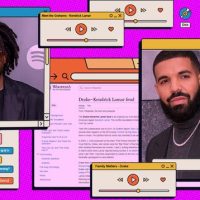Creative writing is a great way to express yourself, hone your writing skills, and be more imaginative. Want to start penning some inventive tales and poems? Here are the things that will help you get typing.
What Is Creative Writing?
Creative writing is a lot of things, so it may be easier to focus on what it’s not: writing college term papers, articles, or the like.
Creative writing is often referred to as literature. It’s not always made-up stories, but it is all about telling a story.
While an article might tell you how to do something or what’s happening in the world, creatively written works take you someplace and help you imagine other worlds, whether those worlds are real or made up. It’s an expressive form of writing, rather than a way of presenting facts.
When you want to try creative writing, it helps to know the different types of writing that fall under this umbrella term. You’ll want to start your foray into creative writing with one type, rather than overwhelming yourself with too many.
Here are some genres to start with:
- Fiction (from vampire horror stories to realistic historical stories)
- Poetry
- Scripts for TV shows and movies
- Plays
- Songwriting
- Memoirs (often written in a creative way, even if they are based on real events)
You can see why we’d suggest starting with one as trying to tackle so many different forms out of the gate would get pretty overwhelming pretty quickly.
Getting Started with Creative Writing
Once you choose which type of creative writing you want to delve into, start looking at the techniques needed to write creatively.
While there are no strict rules to adhere to, most creative pieces include at least some of the following:
- A plot and plot development
- Characters and character development
- A setting for the story
- A point of view (this could be first person, omniscient, or from the perspective of any of your characters)
- Dialogue
- An underlying theme
- Metaphors (these work great in poetry)
- Anecdotes
- Emotional appeal
- Imagination
- Descriptive words and imagery












